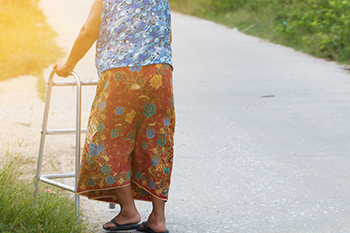
Our homes are our sanctuaries, places of comfort and security. However, they can also harbor hidden hazards that pose risks of falls, especially for children and older adults. Safeguarding your home from falls is essential for ensuring the well-being of your family. Effective fall prevention techniques can begin with good lighting. Adequate illumination in hallways, staircases, and entryways helps everyone navigate safely. Placing non-slip mats and rugs can prevent slipping on slick surfaces, such as bathroom tiles or hardwood floors. Installing handrails on staircases and in bathrooms can help to provide support, especially for those with mobility issues. Keeping walkways clear of clutter and making sure cords and cables are neatly tucked away may help to avoid tripping. Additionally, it is beneficial to regularly check and maintain the condition of flooring and stairs, and repair any loose or damaged areas promptly. By implementing these measures, you can create a safe haven, free from fall-related risks in your home. Falling can affect the feet, possibly causing daily activities to be compromised. If you would like additional information about effective fall prevention strategies, it is suggested that you speak with a podiatrist.
Preventing falls among the elderly is very important. If you are older and have fallen or fear that you are prone to falling, consult with one of our podiatrists from Waterbury Podiatry Consultants. Our doctors will assess your condition and provide you with quality advice and care.
Every 11 seconds, an elderly American is being treated in an emergency room for a fall related injury. Falls are the leading cause of head and hip injuries for those 65 and older. Due to decreases in strength, balance, senses, and lack of awareness, elderly persons are very susceptible to falling. Thankfully, there are a number of things older persons can do to prevent falls.
How to Prevent Falls
Some effective methods that older persons can do to prevent falls include:
- Enrolling in strength and balance exercise program to increase balance and strength
- Periodically having your sight and hearing checked
- Discuss any medications you have with a doctor to see if it increases the risk of falling
- Clearing the house of falling hazards and installing devices like grab bars and railings
- Utilizing a walker or cane
- Wearing shoes that provide good support and cushioning
- Talking to family members about falling and increasing awareness
Falling can be a traumatic and embarrassing experience for elderly persons; this can make them less willing to leave the house, and less willing to talk to someone about their fears of falling. Doing such things, however, will increase the likelihood of tripping or losing one’s balance. Knowing the causes of falling and how to prevent them is the best way to mitigate the risk of serious injury.
If you have any questions, please feel free to contact our offices located in Waterbury and Southington, CT . We offer the newest diagnostic and treatment technologies for all your foot care needs.
